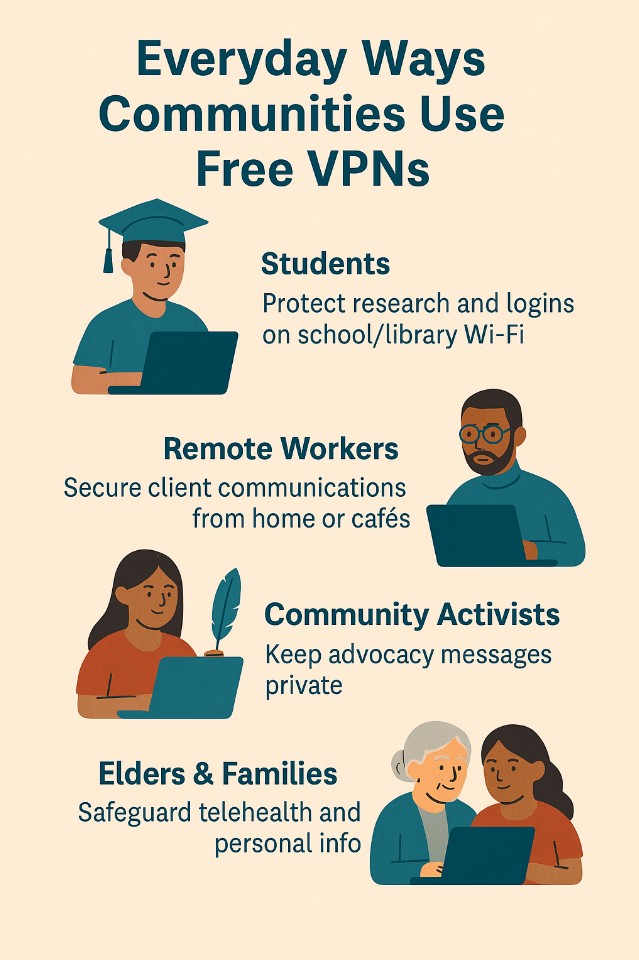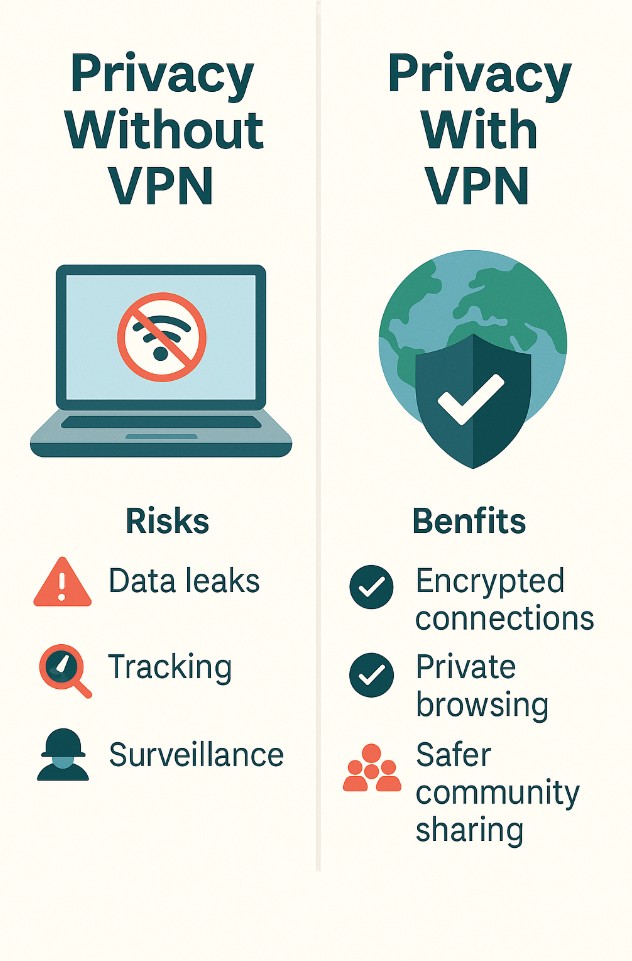- Details
Introduction: The Right to Digital Privacy
The internet has become a lifeline for many Indigenous communities — a tool for education, healthcare, business, and staying connected. From students attending virtual classes to entrepreneurs selling crafts online, digital access is no longer optional; it’s essential.
Yet with this opportunity comes a new challenge: protecting privacy and data security. Cyberattacks, identity theft, and invasive tracking affect everyone, but they can have an even greater impact in communities working hard to overcome historical barriers to access. In today’s world, digital privacy is not a luxury — it’s a right.
This is where Virtual Private Networks, or VPNs, play a vital role. Once thought of as a niche tool for tech-savvy users, VPNs are becoming an essential part of everyday digital life. And thanks to free options, they are now more accessible than ever.
What a VPN Really Does
At its core, a VPN creates a secure “tunnel” for your internet connection. Instead of sending data directly through a public network (like school or library Wi-Fi), it encrypts your activity, keeping prying eyes out.
For non-technical readers, imagine mailing a letter. Without a VPN, it’s like sending a postcard that anyone along the route can read. With a VPN, that postcard is sealed in an envelope — only the sender and the receiver can see the message.
VPNs not only protect personal privacy but also help bypass unnecessary restrictions, giving users fairer access to online resources.
Why Free VPNs Are a Game-Changer
For many households and students, the cost of premium digital security tools is simply out of reach. A subscription might be a small line item for a large company, but it can be a barrier for families working with tight budgets.
That’s why free VPNs are so important. They ensure that privacy and security aren’t reserved only for those who can afford them. Free VPNs allow students, elders, entrepreneurs, and activists to take the first step toward safer internet use without financial strain.
For example, families, students, and small businesses looking for the Best Free VPN can now find modern solutions that combine strong security features with user-friendly design — helping level the digital playing field.
Real-Life Applications in Community Life

The benefits of free VPNs aren’t abstract — they show up in everyday situations:
- Students learning online: Whether at home or on public Wi-Fi, students can use VPNs to keep their research and personal information safe from outsiders.
- Remote workers and entrepreneurs: From artisans selling handmade goods to consultants providing services online, VPNs protect sensitive business communications.
- Community organizers and activists: Advocacy work often involves sensitive discussions. VPNs add an extra layer of protection for those fighting for community rights.
- Families and elders: With more elders using the internet for telehealth and staying connected, VPNs safeguard their personal health and financial information.
In each case, VPNs act as quiet protectors in the background, making digital participation safer and more reliable.
What to Look for in a Free VPN
Of course, not all VPNs are created equal. When choosing a free VPN, communities should pay attention to:
- Encryption strength: Does it protect data effectively?
- No-log policies: Does the provider commit not to track or sell user activity?
- Performance: Is it fast enough to handle video calls and streaming?
- Transparency: Is it clear who owns and operates the VPN?
These factors ensure that the tool genuinely serves its users rather than taking advantage of them.
Privacy as Part of Digital Sovereignty
For Indigenous communities, online privacy isn’t just about personal protection — it’s also about cultural preservation and sovereignty. Safeguarding stories, traditions, and knowledge shared online is as important as protecting passwords or bank details.
When communities adopt tools like VPNs, they are not just keeping hackers at bay; they are also taking steps toward digital self-determination. In a world where control over information is power, accessible cybersecurity helps ensure Indigenous voices remain strong and independent.

Conclusion: Privacy for All, Not a Privilege
Every individual deserves the right to learn, work, and connect online without fear of exploitation or surveillance. Free VPNs make that possible, especially for communities working to bridge the digital divide.
By putting strong privacy tools into more hands, we move closer to an internet that works for everyone — not just those who can afford premium protections.
VPNs aren’t just technical add-ons. They’re part of the foundation for digital equality, empowerment, and sovereignty. And thanks to free options, the path toward safer internet use is finally open to all.
